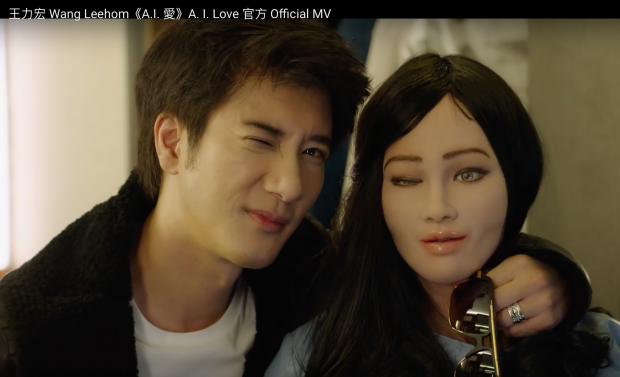International pop star Wang Lee-hom’s 2017 song “AI Love” (“AI Ai” in Mandarin, where “ai” so happens to mean “love”) received, at best, mixed reviews. In this MV, Wang falls in love with a product of AI, sharing many lovely moments with her—including watching international news, singing karaoke, sleeping, taking selfies, and going out for a race car ride in the wild streets at the heart of Hong Kong. Despite all the valid critiques such as the banality of the lyrics and monotone musicality of the main melodies, Wang’s song is undeniably one that gets easily stuck in your head—for better or for worse. If anything, the song leaves behind a timely question to all of us living in the digital age that saw the rise of artificial intelligence (AI): will AI revolutionize traditional notions of romantic love?

Digisexuality and robosexuality are no longer outrageous sci-fi themes; 21st-Century technology has created new types of romantic love. We may, for instance, look at Japan: a country where modern fiction writers such as Haruki Murakami obsess over love and sex in their novels and where anime has dominated the hearts of many worldwide. There, entrepreneurs have found new ways to profit from new versions of love, such as Gatebox—a product that essentially serves as a wife/girlfriend who faithfully waits at home for her human husband/boyfriend and texts him throughout his workday with caring messages. As the New York Times article “Do You Take This Robot …” illustrates, some have even gone as far as to marry the hologram from Gatebox. This form of romance would surely have been unthinkable even just a few years prior.
Gatebox is a deeply creepy—even dystopian—idea in many ways. Despite being a millennial living in the United States, I grew up loving Victorian literature. Admittedly, Mr. Darcy from Pride and Prejudice has long been my fictional crush—so much so that I have found it rather difficult finding a real-life version of my perfect boyfriend. Call me a hopeless romantic all you want, but as a baseline, I firmly believe that romance should only grow if the couple-to-be at least has had some sort of in-person interactions. This, of course, also implies that I see romantic love as fundamentally human. No matter how “perfect” an AI-made lover could be (as Wang Lee-hom fantasises in his catchy music video for “AI Love”), to my knowledge, you cannot teach a robot how to love someone properly. This is even despite talks that one might even teach robots how to make love so that the more physical side of human romance is present in human-robot love affairs.
Technology is awesome in so many ways—for one, as a law student, I respect AI technologies that work to streamline the legal research process, such as what Harvard Law School alumnus Jack Xu has been doing with PatentPal. Yet, we must keep in mind what makes us essentially human. Lest us succumb to the charms of those AI-created perfect lovers. As Valentine’s Day soon approaches, I wish everyone a truly romantic day filled with human interactions.
0
推荐




 京公网安备 11010502034662号
京公网安备 11010502034662号 